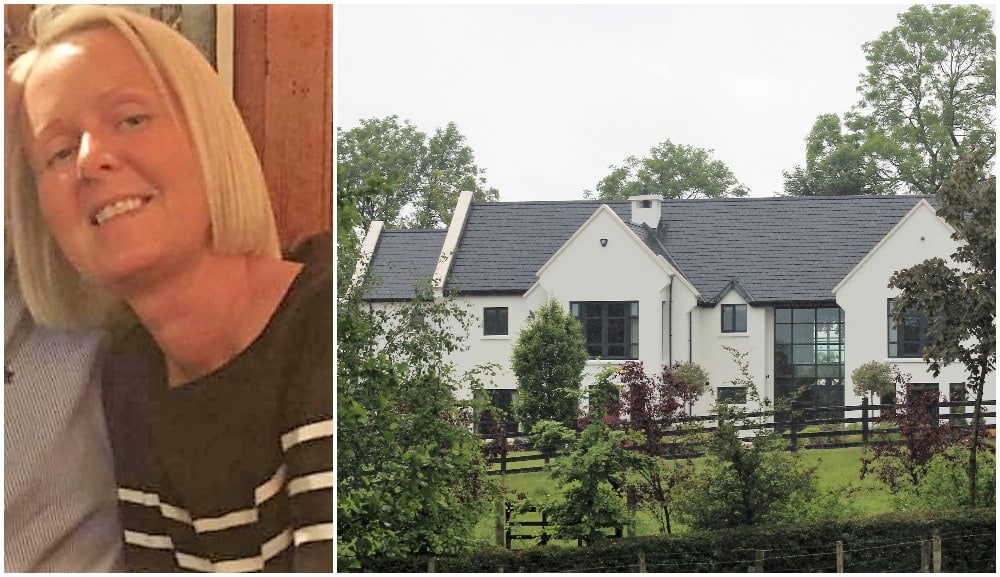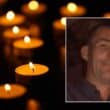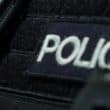
A County Tyrone woman who defrauded her employers out of £1.9 million and faked having cancer to continue funding her lavish lifestyle, has lost a bid to appeal the prison sentence imposed.
Julie McBrien (47) also known as Hogg, of Screeby Road, Fivemiletown carried out the vast fraud and money laundering enterprise over an eight year period, bringing her employers, Cookstown-based Northern Mouldings Limited to the brink of collapse.
The funds were lavished on her luxury lifestyle complete with a sprawling rural mansion, top-of-the-range cars and expensive holidays.
Forensic examination discovered lifestyle spend of just over £141,000; general expenditure of £360,000; property development and interior design totalling £667,000; fashion and beauty at £231,000 and £145,000 on jewellery.
Defence lawyers previously asked for certain details to be omitted from public disclosure, but this was refused.
McBrien made up false bank statements, forging a former employee’s signature having failed to remove his name from the mandate. She then forged a document making her solely responsible for finances, countersigning cheques to herself and creating false invoices.
She told a company director she had a rare cancer, asking him to keep this confidential. The specific condition exactly matched that suffered by a close relative of the director who tried to support McBrien as his employee.
However it was fabricated and she used a particularly sensitive issue to continue funding her opulent lifestyle without interference.
When arrested, she admitted everything, initially claiming the money was spent on holidays and there was nothing to show for it.
A prosecution report found her to have “the ability to manipulate for her own ends and all assessments are based on her own assertions”.
At sentencing Judge Brain Sherrard KC told her: “You were given preferential treatment after claiming to have cancer. You authored that lie and benefited from it … You had no consideration for anyone affected by you. Your offending was borne out of avarice.”
Dismissing the defence suggestion McBrien should be hospitalised instead of jailed, Judge Sherrard noted she, “sought only private treatment, shunning her GP and none of the assessing experts took action to have her detained”.
For almost six years, as the case made its way through court, McBrien’s identity was shielded as she claimed she would self-harm if publicly named, which was robustly challenged by press.
An initial Anonymity Order was so strict even the victims couldn’t be named as McBrien claimed her identity could be figured out within the community.
When the case moved to Dungannon Crown Court in June 2019, press resumed their challenge to the reporting ban.
It would be over two years after the charges were admitted before McBrien was sentenced, as her lawyers brought in numerous experts insisting she shouldn’t be jailed and required permanent anonymity.
One physiatrist travelled from England to tell the court while the stolen funds were, “absolutely enormous” they “had a function”.
He attributed McBrien’s behaviour to – amongst other matters – feeling left out while growing up among four siblings, likening this to “Martyr Syndrome.”
Faking cancer, he contended, was to, “curry emotional support”, felt to be lacking.
The psychiatrist accepted only viewing McBrien’s GP notes up to 2016 (the year of arrest), and didn’t request additional records as he didn’t think they would materially change his opinion.
He also felt such material wasn’t of relevant value, having obtained sufficient evidence from McBrien.
Ultimately his opinion was rejected and in November 2021, after a number of failed court appearances, McBrien was jailed for five-and-a-half years.
Almost a year later she mounted an application for leave to appeal the prison sentence and for Legal Aid to fund this, but both were refused.






